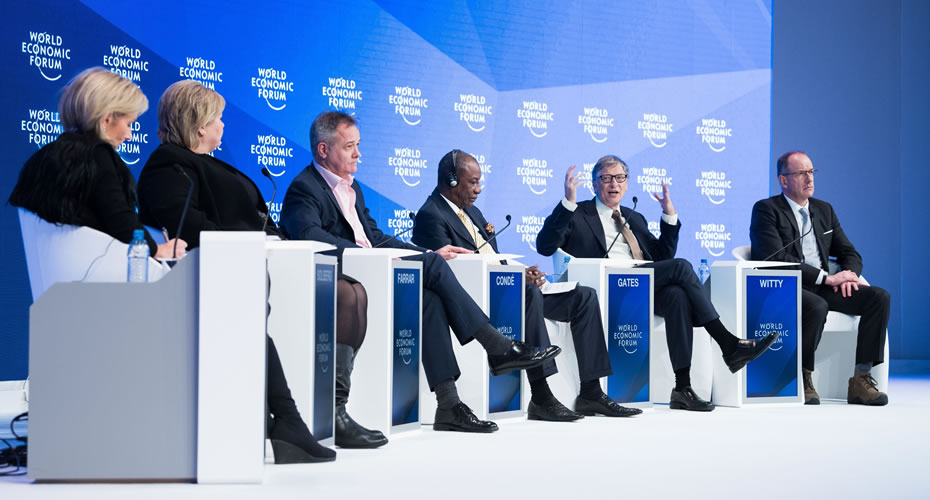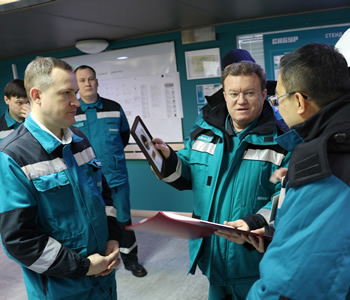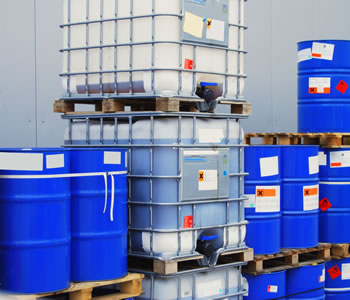A threat to everyone
Plastic is one of the most versatile materials in the world. It is used everywhere and canalways be recycled, but only 14% of all plastics produced in the world is recycled, though.
Shortly before the January meeting in Davos, the World Economic Forum published its regular global risks report naming extreme weather events as a number one threat to global stability for the first time over the recent years. Even weapons of mass destruction, involuntary migration, economic recession and other risks are less frightening, a poll among 750 experts shows.
Every year, millions of people suffer from natural disasters all over the world. Many regions, for instance the Middle East, are already facing a severe shortage of fresh water. Greenhouse gas emissions are growing, with the USA, European Union, China and India recognised as the major culprits. To mitigate the problem, 195 countries signed the Paris Agreement on climate change in 2015. Initiatives provided for in the Agreement are aimed at holding the increase in the global average temperature within 1.5–2°C above pre-industrial levels.
Its implementation, however, will require USD 13.5 trillion in investments before 2030, as was announced at the Davos forum. And there is no guarantee that these investments will be made in full. In addition, the Paris Agreement was heavily criticised by the new US president Donald Trump during his election campaign. The key figure of this year's forum was China’s president Xi Jinping. It was the first time that the Chinese leader had visited the World Economic Forum. Along with the statement about the need to move away from protectionism in international trade, much attention was drawn to his words that the Paris Agreement must not be derailed. You may recall that Russia has also joined the Agreement and committed to fight climate change. Laurent Fabius, French Minister of Foreign Affairs, said that in April global leaders would meet again in Paris to ratify the deal. “We have in Europe problems because of thousands, maybe hundreds of thousands of migrants. But, what about having millions, or dozens of millions of migrants? ...This Agreement is the cornerstone of security,” he said.
Ambitious goal
Apart from emissions, much was said in Davos about waste management. The key issue was extraction, recycling and reuse of industrial materials, primarily metals, paper and plastics.
Ellen MacArthur Foundation has proposed a sustainable plastic disposal strategy and announced the goal of increasing the share of recycled plastic to 50% of the total output, with another 20% of plastics (mostly packaging) to be re-used without recycling.
The share of plastics is estimated at 5% to 15% of the total household waste. Plastic is one of the most versatile materials in the world. It is used everywhere and can always be recycled, but only 14% of all plastics produced in the world is recycled, though. Economic losses from disposable products are estimated at USD 80–120 billion per annum. These figures were cited in the Catalysing Action report published by the Ellen MacArthur Foundation as part of its New Plastics Economy initiative.
The foundation was established by Ellen MacArthur, a renowned British yachtswoman who set the world record for the fastest solo circumnavigation of the globe. Not surprisingly, marine pollution became a starting point of her work, but now the Ellen MacArthur Foundation has a broader view of the problem and urges the global community to pay more attention to waste disposal in general. Quite naturally, plastic is part of the same problem. The report stresses that plastic materials and packaging are inherent in the global economy and offer numerous advantages, which are often overshadowed by unsettled waste management issues.
The Foundation has proposed a sustainable plastic disposal strategy and announced the goal of increasing the share of recycled plastic to 50% of the total output, with another 20% of plastics (mostly packaging) to be re-used without recycling. The remaining 30% (primarily, small packages, organics contaminated plastics and small-batch materials) should be re-profiled to make these plastics recyclable or reusable.
With the ultimate goal of covering 100% of polymer waste, the plans are somewhat idealistic. The first step is a seamless waste collection and sorting process, which no country has yet managed to deliver. In addition, the design and labelling of plastic products should be changed to make them suitable for more efficient sorting and recycling. “If we can push the development of new technology and continue improving economics and statistics, we will be able to make a true step towards transforming our plastics economy,” Ellen MacArthur believes. She also said that the New Plastics Economy initiative found strong support from the business community.
The share of plastics is estimated at 5% to 15% of the total household waste.
Global plans
Packaging materials account for about 25% of global plastic consumption. In Davos, 40 international corporations, including Unilever, Procter & Gamble (P&G), Mars, Danone, Coca-Cola and Dow Chemical, a chemical major, approved the roadmap to increase the share of recycled plastic packaging. Some of them shared their view of relevant practical solutions.
Packaging materials account for about 25% of global plastic consumption. In Davos, 40 international corporations, including Unilever, Procter & Gamble (P&G), Mars, Danone, Coca-Cola and Dow Chemical, a chemical major, approved the roadmap to increase the share of recycled plastic packaging.
For instance, Unilever announced that it would make all of its packaging materials recyclable and reusable by 2025, in full compliance with the initiative proposed by the Ellen MacArthur Foundation. Unilever CEO Paul Polman stressed the importance of packaging for sales, but added that the industry should give a thought to its more efficient re-use.
P&G has been using recycled plastics in its packaging materials for nearly 25 years. In 2010, the company developed a strategy for the next decade, aiming to recycle up to 90% of packaging, reduce its packaging material production by 20% and double the share of recycled resins in packaging components. P&G announced in Davos that one of its most well-known products, Head & Shoulders shampoo, would be then sold in recycled bottles. According to the plans, at least 25% of plastic in them will be collected on beaches. The first 150,000 bottles will be on sale this summer in France. The company promises to manufacture up to half a billion of such bottles by 2018. “We know that the entire industry will follow us,” says Lisa Jennings, General Manager of Head & Shoulders franchise at P&G.
The traditional economic model is linear, going from production to consumption. It will be replaced by circular economy based on the principles of renewable resources. The model of circular economy is directly linked to the UN sustainable development goals adopted in the autumn of 2015. This model is harmonised with many global issues, from the above mentioned effort to combat climate change and reduce greenhouse gas emissions (green energy and green transport) to fresh water sustainability and waste management.
There is no way to ignore these approaches, and every company guided by the principles of sustainable development understands it. Experts point out that these ideas can also generate sizeable income. According to last year’s report by McKinsey, The Circular Economy: Moving from Theory to Practice, recycling becomes increasingly more cost-efficient. Referring to their earlier report, Growth Within: A Circular Economy Vision for a Competitive Europe, company experts note that circular economy is able to generate a net economic benefit of EUR 1.8 trillion already by 2030.
"Carbon footprint for full product lifecycle (with focus on plastics) and circular economy"
Alexey Kozlov, SIBUR's Deputy Chairman of the Management Board and Managing Director (World Economic Forum – 2017, Davos)
Download PDF







